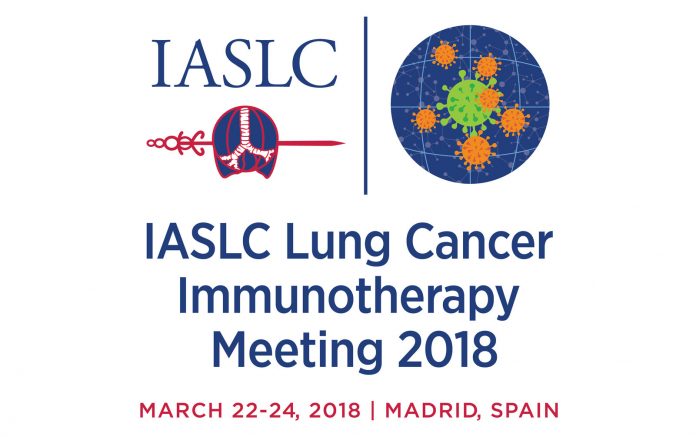 Posted: February 2018
Posted: February 2018
During the past few years, improvements in the knowledge of immune system biology have dramatically changed the therapeutic paradigm for NSCLC. Pembrolizumab has been recently approved by regulatory agencies as an upfront agent for patients with advanced NSCLC with 50% or greater programmed cell death ligand 1 (PD-L1) expression, and recent data strongly support combination immunotherapy and standard chemotherapy in patients with low or no PD-L1 expression. In the second-line setting, single-agent immunotherapy with nivolumab, pembrolizumab, or atezolizumab is now considered the standard of care.1 A recent study showed that durvalumab enhances progression- free survival over placebo in patients with locally advanced NSCLC treated with concurrent chemoradiotherapy.2 Several new agents are under investigation, and clinical trials are exploring the potential role of new drug combinations, the role of immunotherapy in early stages, and the role of immunoprevention.
In such an exciting and rapidly changing era, many questions are arising, such as optimal drug combinations, sequencing, enhanced patient selection, better biomarkers, and cost effects of all new treatments. Therefore, there is an urgent need to revise and critically analyze available data to help clinicians provide the best therapy options to patients.
The Live Educational Experience
The IASLC-sponsored Lung Cancer Immunotherapy meeting, to be conducted in Madrid, Spain, on March 22-24, 2018, will bring together leading experts who are engaged in developing novel therapeutic options for lung cancer, with a specific focus in immunotherapy. The meeting will review the status of immunotherapy in lung cancer, analyzing both preclinical and clinical data. The topics selected for this meeting include: review of immune checkpoint inhibitors and other immunotherapies, analyses of clinical trials in different lung cancer stages, relevant clinical issues including patient selection and treatment of special patient populations, analysis of data on biomarkers predicting sensitivity to immunotherapy, new combinations, and new therapeutic strategies. The meeting will also feature exciting developments in the treatment of early-stage lung cancers, small cell lung cancer, and mesothelioma.
The meeting will open on March 22 with a lecture on lung cancer treatment progress, followed by a lecture on tobacco- and e-cigarette–induced inflammation. On March 23, there will be a discussion of basic immunologic principles, followed by presentation of preclinical and phase I data. Entire sessions will be dedicated to biomarkers, anti–PD-L1/ PD-1 data, new combinations, and new immunotherapy agents—including vaccines— providing the most innovative and updated results. Finally, on March 24, discussion will focus on clinical management, early-stage disease, small cell lung cancer, and mesothelioma. The last part of the meeting will focus on immunoprevention. A nurses’ workshop and advocates’ workshop are scheduled for March 25. This symposium is also open to fellows and early-career faculty members who will present their scientific research as abstracts or oral presentations at the meeting.
The Organizing Committee includes some of the most eminent experts in the field of lung cancer, including IASLC President Giorgio Scagliotti, MD, PhD; IASLC Treasurer Tony Mok, BMSc, MD; Roy Herbst, MD, PhD; Luis Paz-Ares, MD, PhD; and David Carbone, MD, PhD. Taken together, the upcoming meeting in Madrid promises to be a scientifically relevant event with an abundance of new topics and updates on emerging research themes. ✦
About the Author: Dr. Cappuzzo is Director of Oncology and Hematology Department at AUSL Romagna in Ravenna, Italy.
References:
1. M. Reck, MA Socinski, F Cappuzzo, et al. Primary PFS and safety analyses of a randomized phase III study of carboplatin + paclitaxel +/− bevacizumab, with or without atezolizumab in 1L non-squamous metastatic NSCLC (IMPOWER150). Abstract presented at: ESMO Immuno Oncology Congress 2017: December 7, 2017; Geneva, Switzerland.
2. Antonia SJ, Villegas A, Daniel D, et al. Durvalumab after Chemoradiotherapy in Stage III Non-Small-Cell Lung Cancer. N Engl J Med. 2017;377(20):1919-1929.











